Comics Are For Everyone: The Last of the Greats/Avengers vs. X-Men #6
/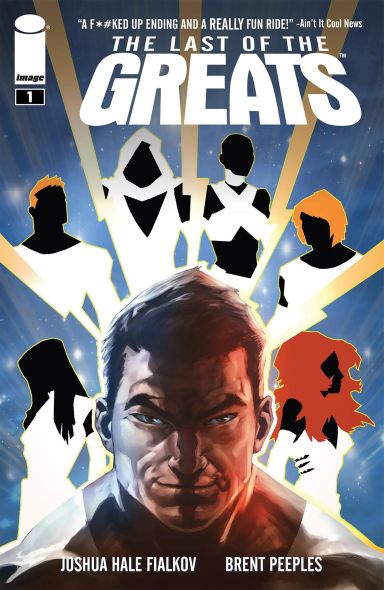
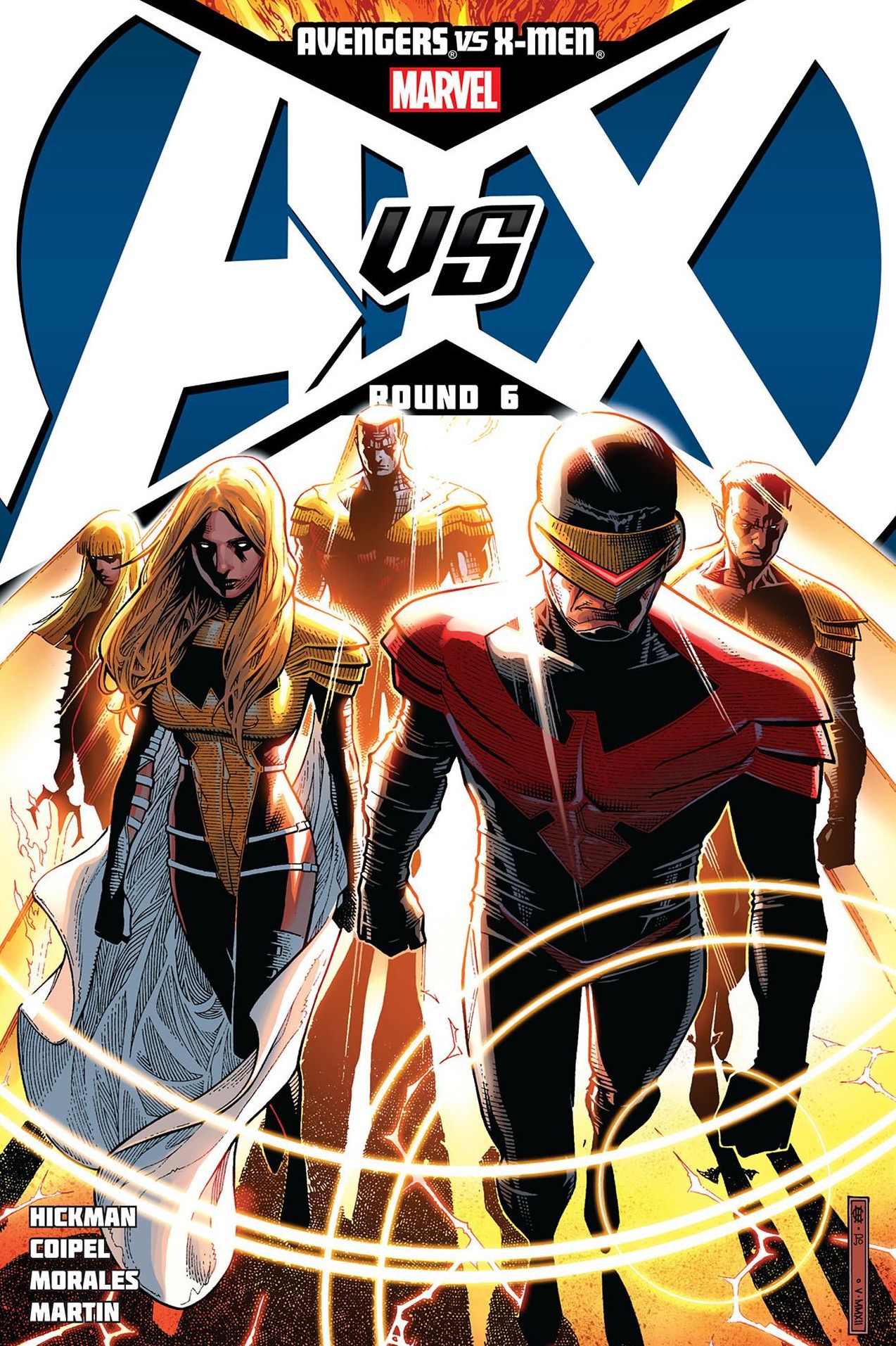
“Humans are flawed and this is why they destroy the earth.” Would anyone doubt that assumption? Probably not. I do because I think it’s not humans but culture that is flawed. Anyway, I want to look at two comic books today that ask the question: What would happen if all the problems in the world could be solved? What would humans do then? Those are intriguing questions that revolve around the notion of humans being flawed or not. If they are not flawed, solving all the problems would save the world. If they are flawed, all the problems will just come back. Looking at these questions are Joshua Hale Fialkov and Brent Peeples in their mini-series The Last of the Greats, published by Image in 2011 and 2012, and Jonathan Hickman and Olivier Coipel in the best issue of the event comic Avengers vs. X-Men (or just AvX because it’s so cool), published in 2012 by Marvel (which was written by every major Marvel writer but was quite a mess overall).
(there will be spoilers)
In The Last of the Greats omnipotent creatures come to earth and try to help humans by solving all their problems. These include ‘dividing resources evenly, […] homes for the homeless, schools for the children, […] food for the starving.’ But it quickly becomes clear that earth did not become paradise because of this. The creatures, the Greats, say it’s because humans are ‘disgusting’ and hated them for their help. The humans say that they didn’t trust them, because they were expected to give up all their weapons, thereby making themselves defenseless. The Greats seem to have better arguments the mankind bashing continues, calling them ‘never the smartest’ and that they ‘have no intention to change.’ But they are also ‘good people, brave people.’ In a late panel the last of the Greats explains how humans destroyed our planet.
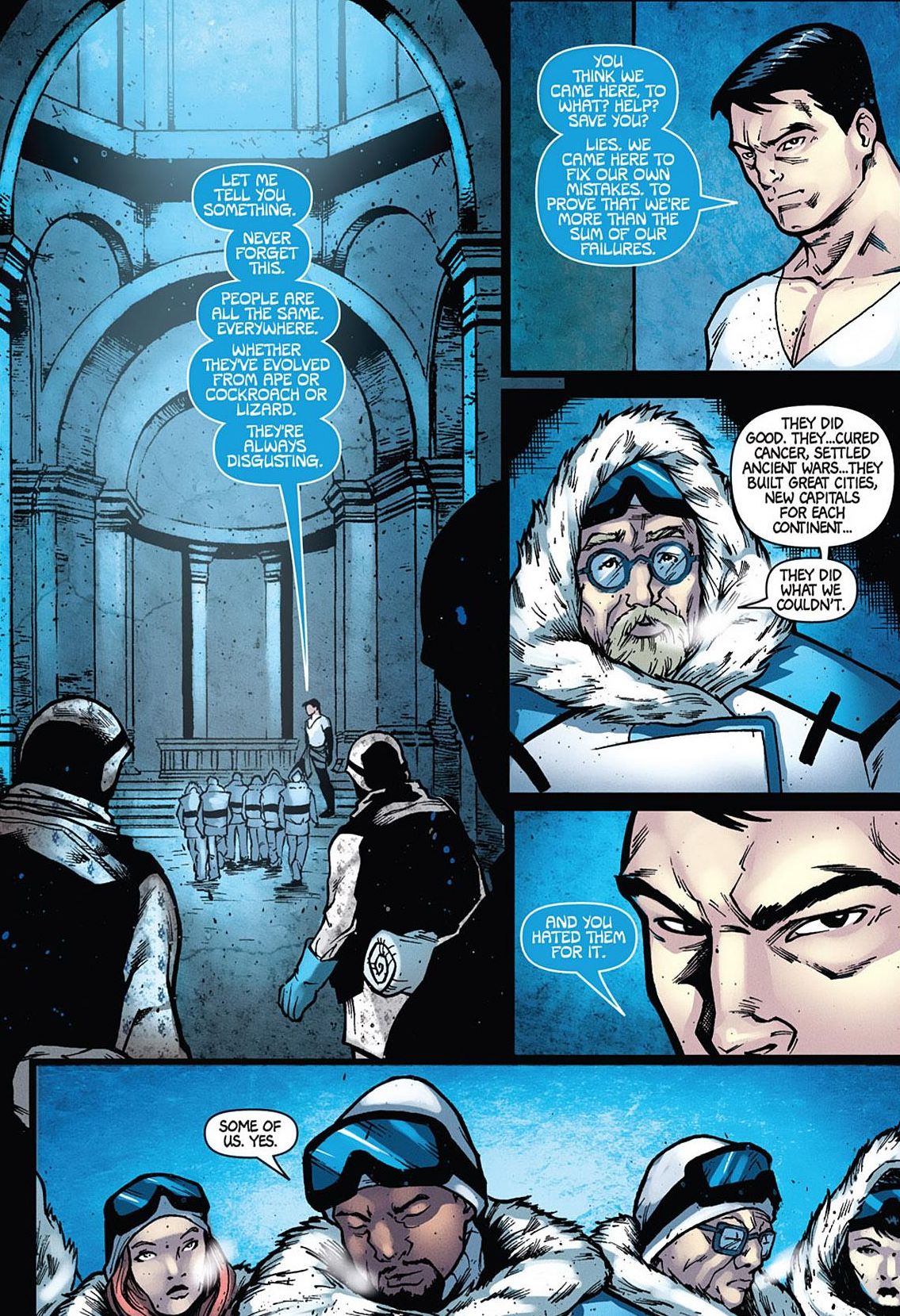

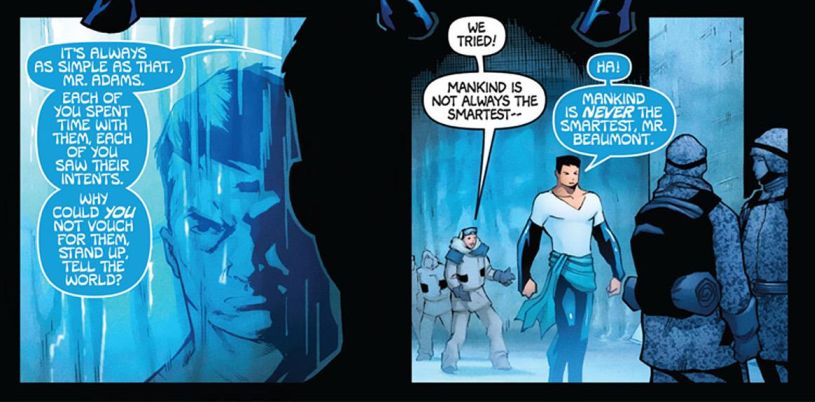
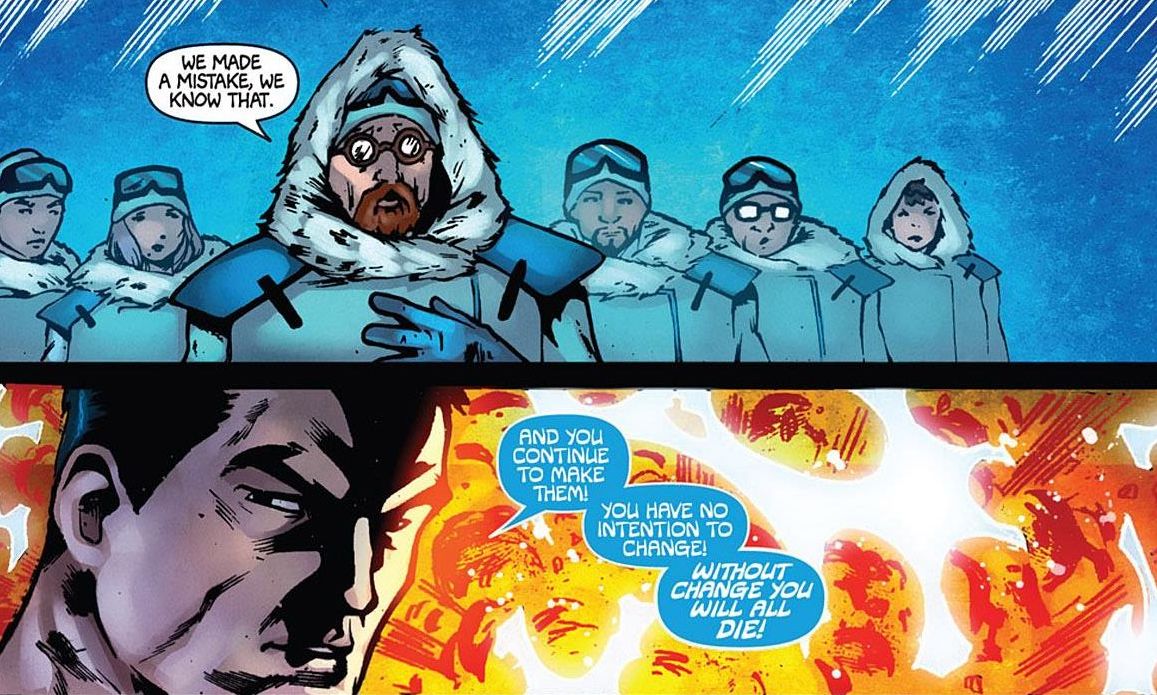
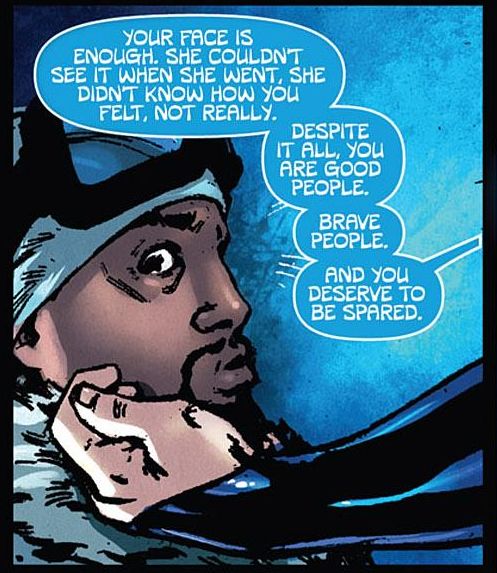
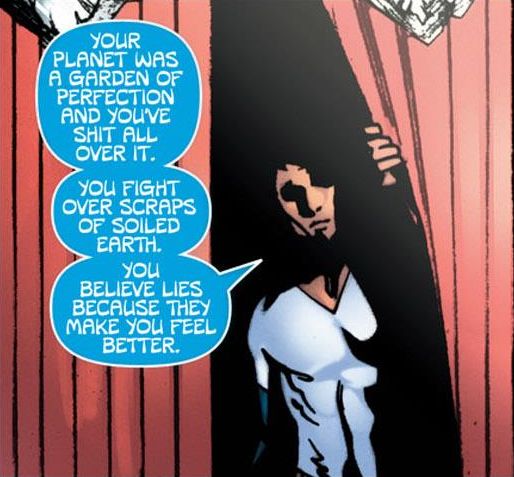
The story is also about how this supposed savior then tries to become king of Earth and humans have to fight him, so there is a stab at authority and dictators. But what is never really questioned is this notion, that this is what humans deserve because they are weak, flawed and self-destructive. They are offered a perfect world and they ruin it. So it must be their fault. This shows how inherently we tend to believe this. Yes, we are basically good people, but we can’t help but fuck up everything. It’s human nature (can anyone remind me to write about the myth of “human nature” at some point?), it can’t be changed.
Don’t get me wrong, I don’t think this notion (that I don’t believe) makes this comic less worth reading. I think it gets caught up too much in the idea of the villain trying to fool humanity, but there are many interesting ideas and we can always use more comics with ideas. And Joshua Hale Fialkov is simply a good writer.
Jonathan Hickman is also a good writer, even if he sometimes gets lost in his own intricate plots. But Marvel was clever enough to hire him, so that he can write terribly confusing but often entertaining comics about the Fantastic Four and the Avengers. Or even event comics like Infinity or two issues of Avengers vs. X-Men, which falls into the mediocre section of event comics (it’s called Avengers vs. X-Men…). But issue 6 is outstanding because again, it has ideas and Hickman is not afraid to challenge the reader and Olivier Coipel is, as always, not afraid of drawing breathtaking images.
The overall story deals with the fact that the Phoenix Force, a powerful entity that has been causing trouble for decades, comes to Earth and five of the X-Men become its host, turning them into all-powerful beings that can now change the world. In issue 6 we see the results of this, as the Phoenix Five (as they are called) try to solve all the world’s problems, ending hunger, watering the deserts and destroying all weapons, creating a literal utopia. Because this is issue 6 of a 12-issue-series and because that’s not how things work, of course earth will not remain paradise. But why?
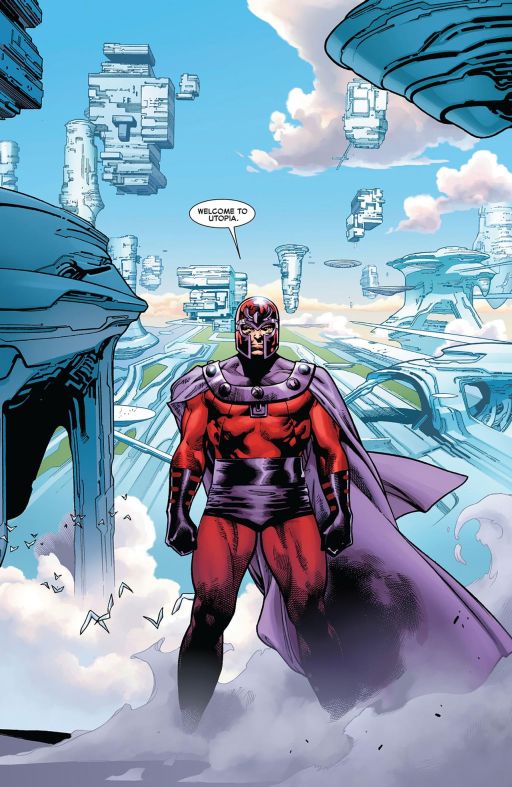
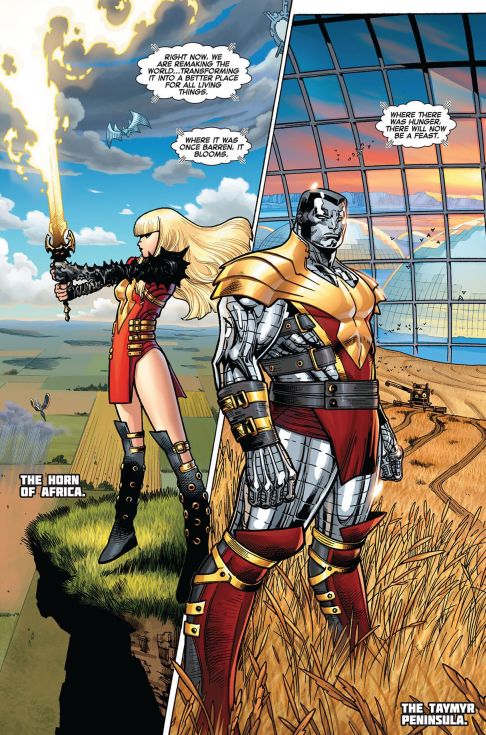
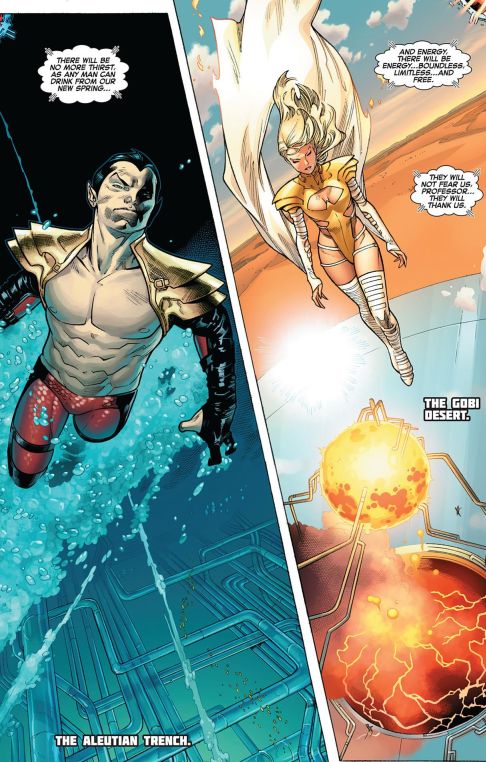
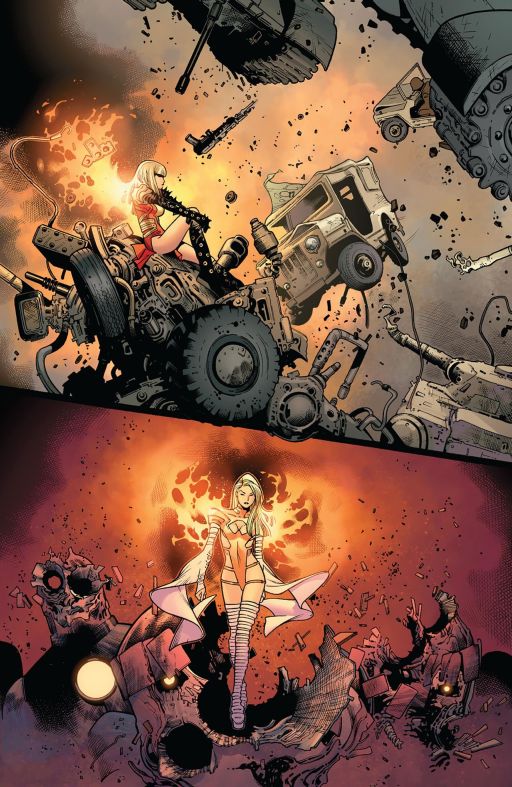
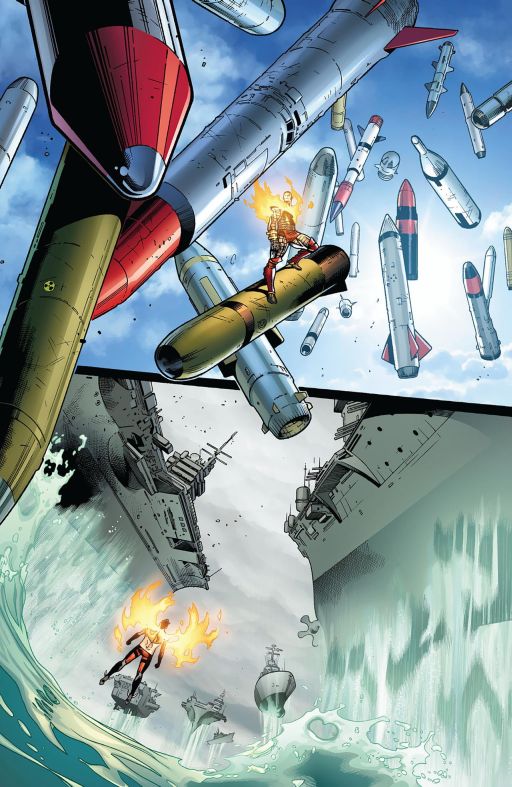
Here we have several explanations. Professor X mentions that ‘people are afraid’ because of the Phoenix Five’s power. He has another strange argument, saying despite all the success, ‘it’s cheating… it has cost nothing.’ Magneto, the Phoenix Five leader, rejects this because of all the suffering mutants have gone through, but just think about the argument again. If you want to do something to change the world in a positive way, there has to be a cost? This is such a typical argument for our culture. You get nothing without working hard for it. Everything has its cost. Well, no, not necessarily, right? Does the work or cost you put into something count more than the result?

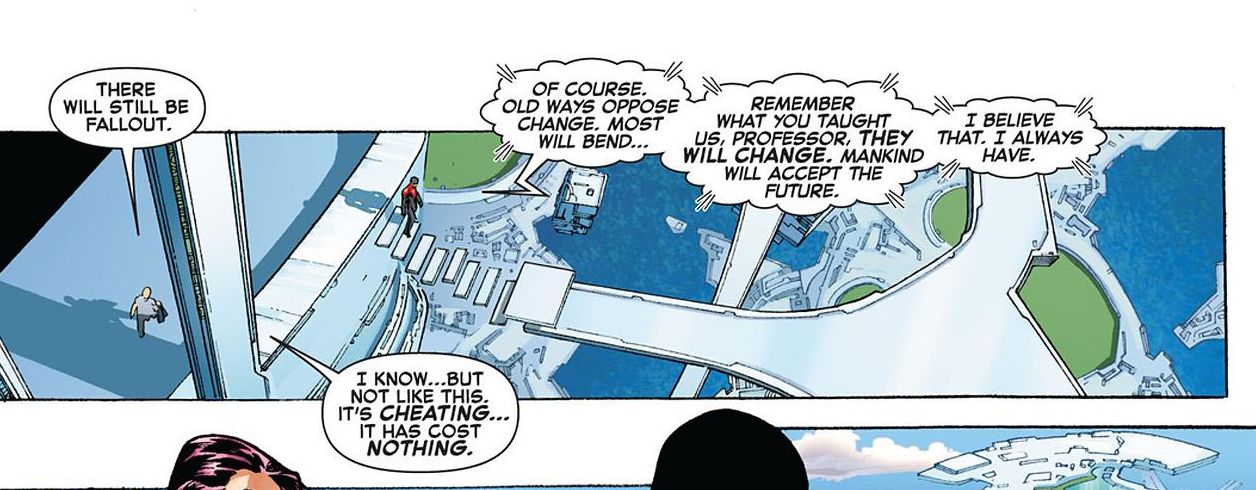
The Avengers meanwhile plot against the Phoenix Five because of that mentioned fear of their power. But Hank McCoy (Beast) gets upset about this, saying he can’t plan to kill people who make this ‘a world we can all live in.’ Well, isn’t he right? And Barack Obama (yes, he’d care if the world was changed by Phoenix Force inhabited X-Men, right?) says ‘In spite of all our flaws, I believe in mankind—we have a history of forward progress.’ Now, that’s something. First, humans are flawed, no doubt about it, but still, you know, good. But ‘forward progress’? Either he talks about civilization, our culture, which always prides itself with progress and a history that is willing to destroy anything for progress, so that “forward” is a relative term. If he’s actually talking about humans, well, then all he’s talking about is evolution and there isn’t anything we can be proud of because we can’t really meddle with that. And what he then adds about a ‘culture of accountability’, that’s just nice sounding nonsense. The Phoenix Five of course will fail, because Power Corrupts, which is somewhat true but rarely is used to really examine power. It sounds like an easy answer to me.
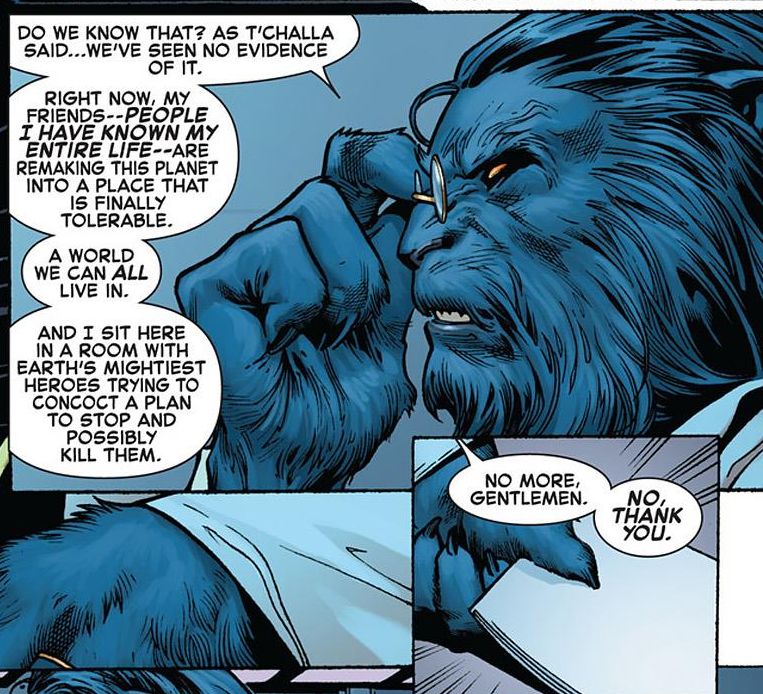
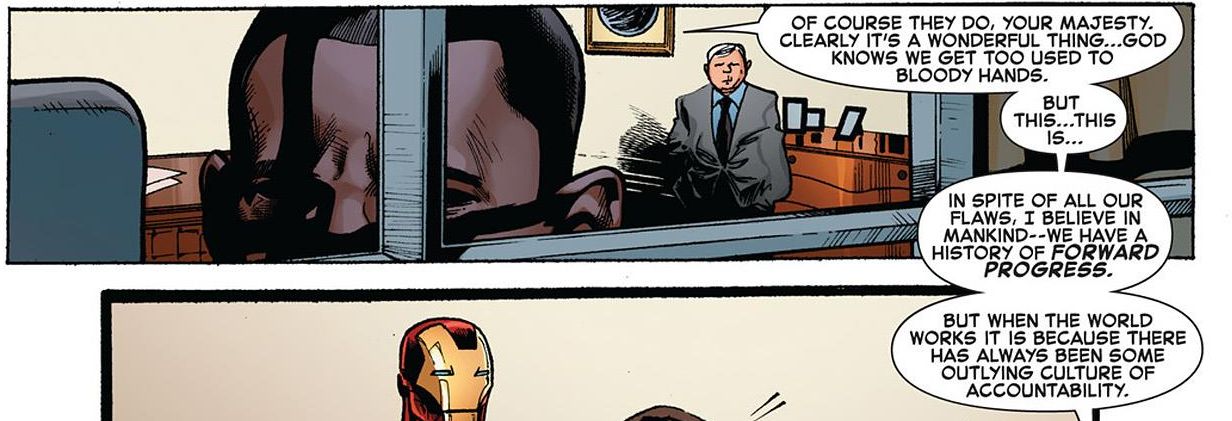
In the end, we have two very similar stories that in their concepts also imply the flawed nature of humanity. If we weren’t flawed, why would we need semi-gods to help us? In both cases the created utopia doesn’t last because of a mixture of corruption of power and mistrust. What both never even hint at is my by now repeatededidea that it’s not humans but just our culture that’s flawed. I don’t know that this concept would make for less interesting stories, but at least it would give us a glimmer of hope.

